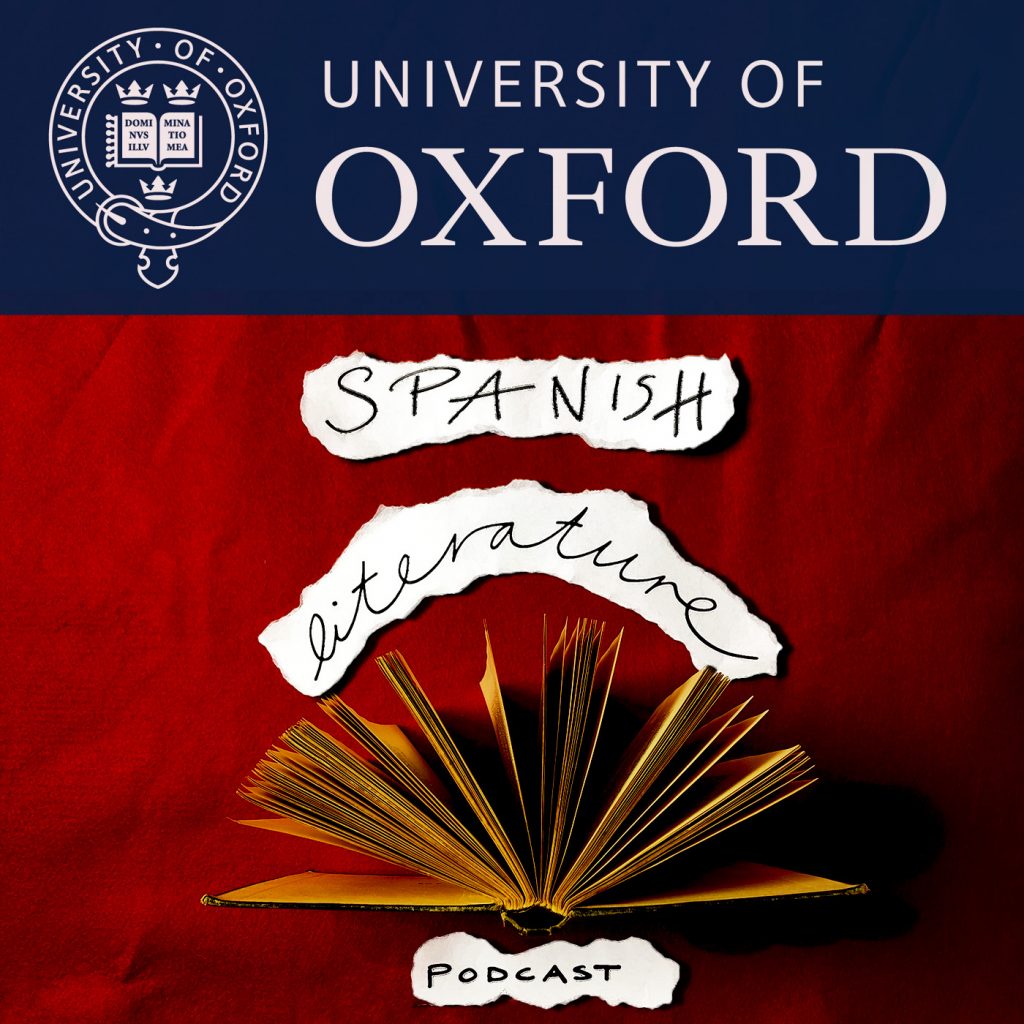
Now available online is a series of podcast episodes featuring members of the Spanish sub-Faculty talking about some of the works that we teach at Oxford, produced and presented by one of our own Modern Languages graduates, Christy Callaway-Gale.
The series is aimed at people thinking about applying for Modern Languages at university, their teachers, and also the wider public. We hope to share our fascination with literature in Spanish, to explain why we love teaching it, and why we think you might love it too.
Each episode features a different member of the Spanish sub-Faculty talking about a work of literature from their area of expertise. The format is quite informal, more a relaxed interview than a lecture. As studying Spanish at Oxford involves looking at literary texts in a lot of detail, each podcast episode also includes a segment where tutors perform a close reading of the text (or extract of the text) they’ve been speaking about. We hope this will de-mystify the literature we teach on the course and, if you’re interested in applying for Modern Languages at university, that it will give you a sense of what it might be like to study Spanish at Oxford.
In the first four episodes, we travel from the medieval period to the twentieth-century. Geraldine Hazbun talks about the beautiful and moving poem, Coplas por la muerte de su padre by Jorge Manrique. Oliver Noble Wood introduces listeners to a classic of early-modern picaresque fiction, Lazarillo de Tormes. Moving to Latin America, María del Pilar Blanco gives an insight into the writing of the Mexican Revolution, with Nellie Campobello’s Cartucho. Finally, Dominic Moran talks about Julio Cortázar’s expertly crafted, highly deceptive short story “Continuidad de los parques.”
Future episodes, we hope, will feature Spanish-Peninsular literature, as well as more texts from the medieval and early modern (Golden Age) periods.
And you can listen to the trailer here…
Ben Bollig.
Professor of Spanish American Literature,
University of Oxford
